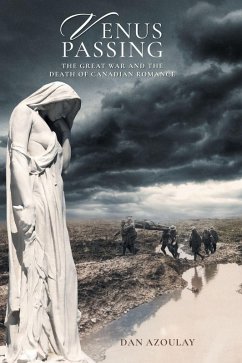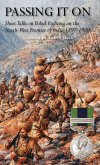Historians have written a great deal about the military aspects of Canada's Great War but little about the most intimate dimension of Canada's wartime experience: heterosexual romance. Did romance influence a man's decision to go to war or his behaviour on the battlefield? How did women who were left behind or widowed cope without their loved ones? How did lonely and sex-deprived soldiers cope? Did they remain faithful to their wives and girlfriends? And what effect did prolonged separation have on couples, on their feelings for one another and on their mental well-being? Readers looking for answers to such questions will find them here. In this unique study, which draws extensively upon the letters, diaries, and memoirs of the men and women of the time, Dan Azoulay argues that the Great War essentially killed Canadian romance, both at the time and for years to come. Opportunities for true romance dwindled overnight. Soldiers, military nurses, and civilians alike subordinated romance to more patriotic priorities. Couples were driven apart, their relationships strained by distance and infidelity. Lonely soldiers with limited leisure time resorted to superficial "fast" romance, including dalliances with prostitutes. Thousands of men never returned, and those who did were never the same. Readers will find much that is amusing in this account, but they will also be saddened, for this is a story less of triumph than tragedy, where Vimy Ridge and the "last 100 days" symbolize not so much the birth of a nation as Cupid's demise. For anyone interested in the human devastation of war, Venus Passing will cause them to see the Great War from a new perspective, one that brings the trials of this lost generation to life in a way no other book has yet done.
Bitte wählen Sie Ihr Anliegen aus.
Rechnungen
Retourenschein anfordern
Bestellstatus
Storno








